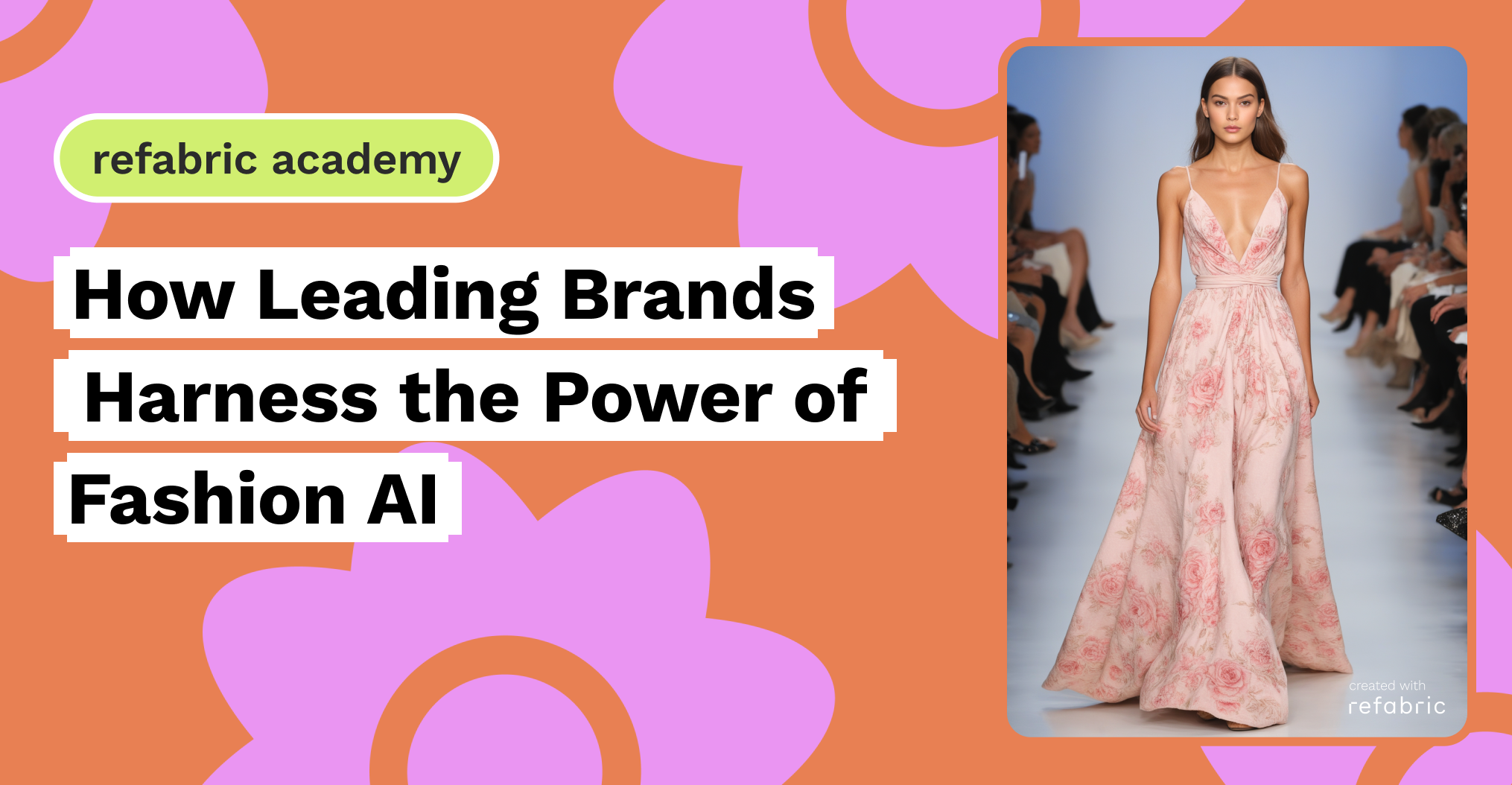The fashion industry, ever at the forefront of innovation, is increasingly turning to artificial intelligence (AI) and fashion AI to revolutionize its operations, sales strategies, and customer experiences. Fashion AI is no longer a futuristic concept; it’s a present reality reshaping how brands operate, engage with customers, and drive revenue.
While AI has been utilized in the fashion sector for some time, a notable surge in adoption has occurred over the past few years. According to McKinsey analysts, generative AI could add between $150 billion and $275 billion in profits to the fashion industry by 2030. This article explores how leading fashion brands like Levi’s, Marks & Spencer, Moncler, and Valentino are harnessing the power of AI to stay ahead in the competitive fashion landscape.
Streamlining Operations
Fashion brands are leveraging AI to streamline their operations in various ways, enhancing efficiency and reducing costs. For instance, AI-powered inventory management systems are transforming how brands handle their stock. These systems analyze sales data and predict future demand, ensuring optimal stock levels and reducing the risk of overstocking or stockouts.
Levi Strauss & Co., a global leader in denim, utilizes an AI-driven Business Optimization of Shipping and Transport (BOOST) engine to optimize inventory management. This technology enhances their capability to accurately predict sales trends and swiftly adapt to changes in demand. By anticipating stock requirements and avoiding excess inventory, Levi’s achieves a more agile and sustainable supply chain.
In the UK, Marks & Spencer is utilizing computer vision and CAD data to automate product design and documentation. This automation involves generating product descriptions and editing images, streamlining their marketing workflow while ensuring consistency. By simplifying these tasks, M&S enhances efficiency and ensures that their marketing assets are both compelling and accurate.
Boosting Sales via Fashion AI
Fashion AI is revolutionizing the way brands boost their sales by leveraging new marketing tools, such as AI-driven fashion campaigns. By utilizing personalized marketing and AI-generated recommendations, brands can connect with consumers in more meaningful and engaging ways, leading to increased sales and stronger customer loyalty.
Moncler, renowned for its signature down jackets, has already begun incorporating AI technology into its campaigns. A notable example is Moncler’s Genius Campaign during London Fashion Week 2023, which seamlessly combined AI’s capabilities with human creativity to deliver a captivating blend.
Recognizing the potential of AI early on, Valentino launched its ‘Essential’ campaign in January 2023, embracing generative AI technology. This campaign depicted a hybrid world where human creativity and machine intelligence intertwined, with each image produced by a generative text-to-image system. Led by AI specialist Vittorio Maria del Masso, the campaign beautifully captured the fusion of creativity and computation, showcasing how brands can enhance their visual storytelling through artificial intelligence.
Enhancing Customer Experiences
Enhancing customer experiences is a critical aspect of maintaining brand loyalty and driving repeat sales. Fashion AI is enabling brands to offer more personalized and engaging experiences, both online and in-store.
Nike’s “Nike Fit” app employs augmented reality (AR) to scan customers’ feet using a smartphone camera, providing accurate shoe sizes through a 13-point measuring system. As more people use the app, it gathers additional data, enhancing sizing recommendations, reducing returns, and increasing profits.
British retailer Next uses generative AI to create tailored responses to thousands of customer queries. This ensures consistency, saves time, and streamlines customer service, allowing their team to focus on more complex issues. Similarly, H&M’s chatbot on the Kik messaging app enables customers to browse products, receive styling tips, and enjoy personalized recommendations through natural language interactions.
Fashion AI is transforming the fashion industry by streamlining operations, boosting sales, and enhancing customer experiences. Brands like Levi’s, Marks & Spencer, Moncler, and Valentino are leading the way in adopting AI-driven solutions to stay competitive and meet the evolving demands of consumers. As fashion AI continues to advance, its impact on the fashion industry will only increase, creating new opportunities for innovation and growth.
